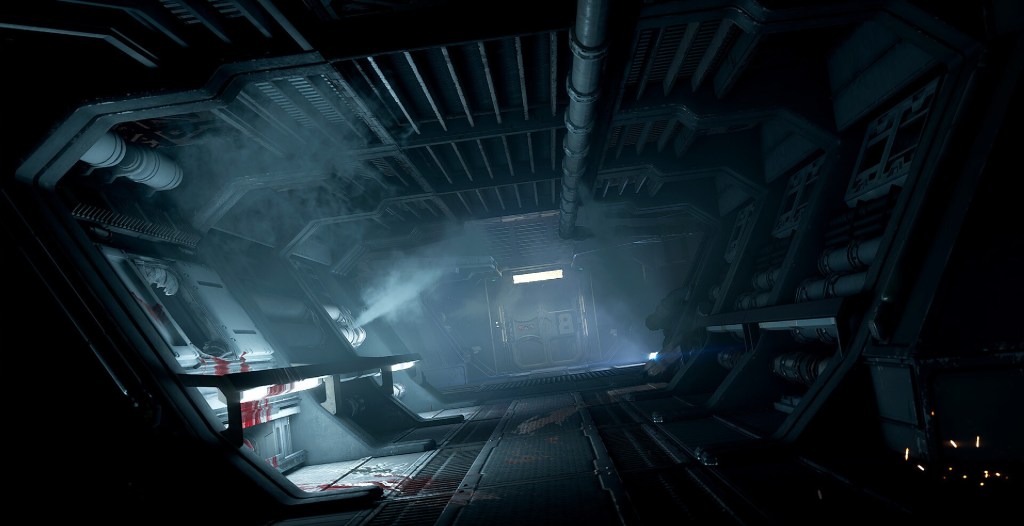That headline is no joke. Even though I “beat” The Witcher 3: The Wild Hunt last year, I’ve spent the last two weeks returning to CD Projekt Red’s big, beautiful open world and falling in love all over again. If you, like me, accidentally passed over the game’s two expansion packs, preferring to move onto a brand-new game, it’s time to fix that mistake.
It’s a slower time for games right now, the calm before the fall’s blockbuster storm—a perfect time to look back at the games released earlier in the year, find a good sale, and play what you might have missed. I’d downloaded, deleted, re-downloaded, and hovered my mouse over The Witcher 3‘s two expansion packs several times in past months but never clicked play.
Videos by VICE
Boy, I’m glad that’s changed.
As I wrote about in our monthly feature about the games we’re playing, the birth of my first child provided plenty of downtime. (They sleep 16 hours a day, at least when they’re not crying bloody murder at four in the morning.) The prospect of hours with few commitments to the outside world seemed like the perfect time to see what Geralt—the titular Witcher—was up to in Hearts of Stone and Blood and Wine. The former released last year, the latter arrived back in May, and though Hearts of Stone is great, Blood and Wine is truly special. (That said, you can’t go wrong by playing both.)
Blood and Wine transports Geralt to Toussaint, a land torn from the pages of King Arthur. But while classically inspired, Blood and Wine subverts expectations in the same way that made Wild Hunt so special. A pretty princess reveals herself to be a smart, capable fighter, not just a token beauty. A knight looking to rescue his one true love from a terrible curse is actually an asshole who can’t accept that maybe he’s not wanted. All the while, the charmless but empathetic Geralt of Rivia finds himself in the center of things.
One reason open-world games can get on my nerves is that it can be tough to find the best stuff ASAP. Though my taste in games ranges from Spelunky to Rocket League, in my heart of hearts, I want to experience a good story. I truly enjoyed the 60-plus hours I spent with The Witcher 3, but sometimes, it felt like I was plucking through mediocre quests to find the really good ones. These expansion packs are beefy (with Blood and Wine basically qualifying as its own video game), but greatly benefit from an increased focus. Tracking every side quest and contract is worthwhile because there aren’t an overwhelming number of them, which allows the expansions to avoid the content bloat that often plagues games like this. As I near the final quests in Blood and Wine, I find myself seeking out the “meaningless” filler, hoping it will put off my desire to finish off the expansion. I just don’t want my time with The Witcher 3 to be truly over.
But weirdly, I’ve spent most of my time slaying monsters and crafting gear thinking about a different game. My time with the expansions has brought clarity to another question that’s been bugging me for the better part of a year: Gosh dangit, how come I couldn’t get into Fallout 4? Granted, I spent 40 hours wandering the wastelands of the Commonwealth, but I never even finished the main story. Those 40 hours came with a sense of obligation, a desperate search for a game that didn’t exist. Why else would I spend nearly two days with it, when I could have been doing anything else? But after investing more than 100 hours into both Fallout 3 and Fallout: New Vegas, my anticipation for Fallout 4 was through the roof. There are few games I allow myself to invest dozens of hours into—largely because I can’t!—but Fallout has been the exception. Not even the recently released, largely praised new DLC, Nuka-World, has been enough to pull me back in.
As a critic, it’s not often that I experience genuine, profound disappointment. Call it cynicism, call it tempered expectations after more than 15 years in the business. But with Fallout 4, Bethesda kept the game under wraps, revealing it when it was nearly done. Lovely! But Fallout 3 came out in 2008, marking seven years in between direct sequels. In the years since, my mind was conjuring a hypothetical Fallout 4, but in reality, other developers were carrying Bethesda’s baton.
No developer has carried that baton further than CD Projekt Red.
I’m now convinced The Witcher 3 is half responsible for my response to Fallout 4. Bethesda Game Studios was building open-world games before they were trendy—no developer had more experience with them. But their games had serious problems, like their famously crappy combat. (Who didn’t celebrate when you became overpowered enough to ignore combat altogether?) With The Witcher 3, CD Projekt Red made enormous strides crafting an open world, while simultaneously building a competent action game. This, combined with the studio’s reliable penchant for interesting storytelling, has proven killer. With Fallout 4, the open world took a step back, the quest lines weren’t memorable, and combat was… well, adequate.
Maybe Bethesda games are no longer for me. That happens. (My revulsion to Fallout 4‘s base building, which others found wholly satisfying, might be an indication that’s the case.) But when you lose something you love, your first response is to find a replacement. For me, and maybe for you, that’s looking like CD Projekt Red. Cyberpunk 2077, the next project from the developers behind The Witcher 3, is due out in the next few years. It can’t come soon enough.
Follow Patrick Klepek on Twitter.
More
From VICE
-

Screenshot: Prideful Sloth -

Screenshots: YouTube/PerfectlyParanormal and Yogscast Games -

Screenshot: Survios -

Screenshot: Shaun Cichacki
